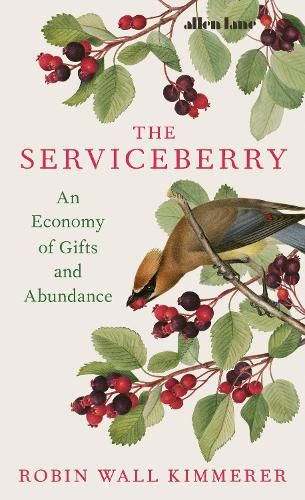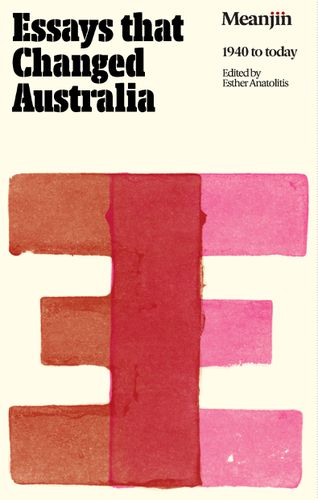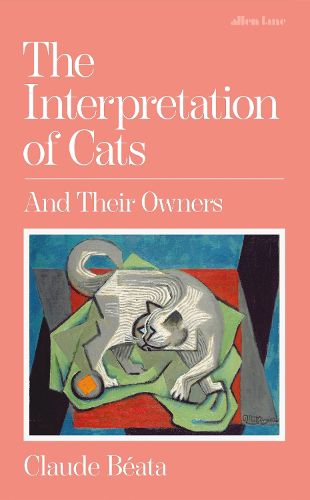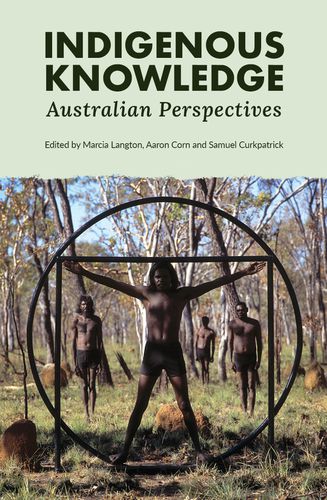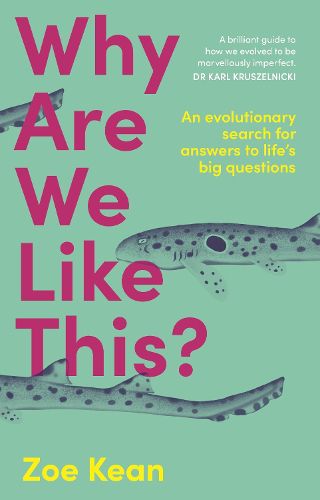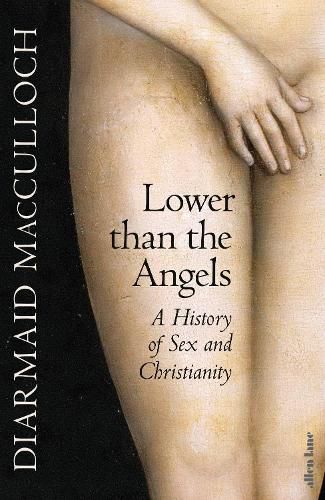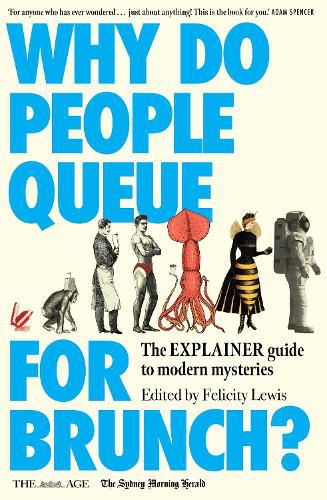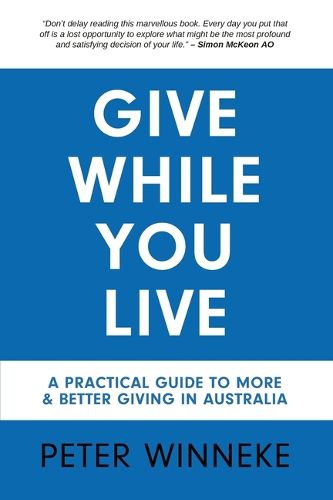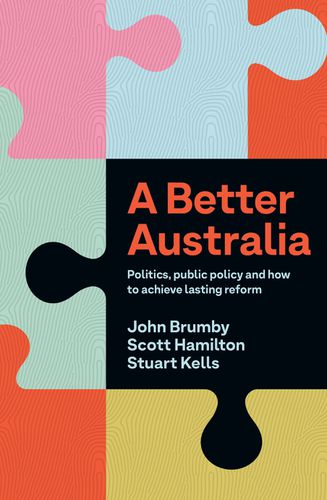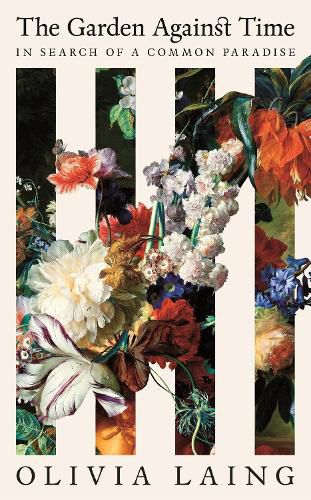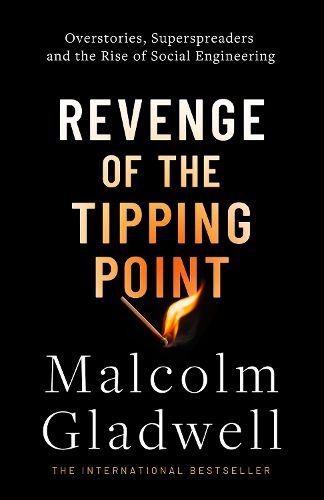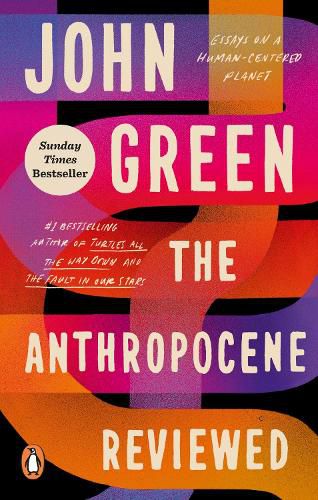Our lovely bookseller Elke has shared some great nonfiction recommendations that provide incredible insight into big news issues. But if you're looking for a different kind of read (that will make you a bit less furious about the state of the world) try one of these fascinating books that cover topics across science, history, economics and philosophy.
2024 isn't over just yet, so it's not too late to change the way you look at the world and into the new year with a fresh perspective ...
The Serviceberry by Robin Wall Kimmerer
As indigenous scientist and author of Braiding Sweetgrass Robin Wall Kimmerer harvests serviceberries alongside the birds, she considers the ethic of reciprocity that lies at the heart of the gift economy. How, she asks, can we learn from indigenous wisdom and the plant world to reimagine what we value most?
Our economy is rooted in scarcity, competition, and the hoarding of resources, and we have surrendered our values to a system that actively harms what we love. Meanwhile, the serviceberry's relationship with the natural world is an embodiment of reciprocity, interconnectedness, and gratitude. The tree distributes its wealth – its abundance of sweet, juicy berries – to meet the needs of its natural community. And this distribution ensures its own survival. As Kimmerer explains, 'Serviceberries show us another model, one based upon reciprocity, where wealth comes from the quality of your relationships, not from the illusion of self-sufficiency.'
Essays that Changed Australia: Meanjin 1940 to Today by Esther Anatolitis (ed.)
Since the 1940s, Meanjin essays have set the national cultural agenda. Arthur Phillips' idea of 'cultural cringe' has become a household word, instantly conveying Australians' sense of place in the world while expressing our frustrations and our ambitions – yet very few of us know it came from an essay first published in Meanjin. Over half a century later, Chelsea Watego's 2021 'Always bet on Black (power)' roars with the fire of a manifesto; Hilary Charlesworth's 1992 'A law of one's own?' challenges Australia's legal system with a formidable feminist ethic; Tim Rowse's 1978 'Heaven and a Hills Hoist' passionately defends suburbia; David Yencken's 1988 'Creative City' sparks a global urban planning movement with artists at the centre.
This anthology brings togethers twenty impactful Meanjin essays for the first time. An introduction by editor Esther Anatolitis offers critical context and scrutiny, illustrating how profoundly Meanjin essays have changed Australia.
The Interpretation of Cats by Claude Béata and David Watson (trans.)
Is your cat happy? What can you do to help? And what can cats teach us?
The relationship between humans and cats has never been simple. Cats are mysterious and contradictory, independent and affectionate, predator and prey. Their true nature continues to elude us, and their subtle and complex behavioural problems can often seem unsolvable or incomprehensible.
In this ground-breaking book – a huge bestseller in its native France – veterinary doctor and psychiatrist Claude Beata draws on cutting-edge research and decades of experience with cats, to revolutionize our understanding of pets and transform our appreciation of feline mental wellbeing. Here, we meet Nougatine, a Siamese suffering from bipolar dysthymic disorder, Tabatha, an anxious Ragdoll with attachment issues, and Melly, an Abyssinian struggling with a feline form of schizophrenia – as well as their owners who seek advice and support.
Charming, surprising, and offering illuminating insight into a range of disorders, Beata's book calls for greater compassion and provides a new way of understanding cat psychiatry so we can care for the mental, and physical wellness of our beloved pets.
Indigenous Knowledge: Australian Perspectives by Marcia Langton, Aaron Corn and Samuel Curkpatrick (eds)
How are we to live well with others? How can we sustain abundant environments and nourishing cultures? How might connections to place and generations past strengthen our cultural, political and economic futures?
Indigenous knowledge traditions have been fundamental to human life in Australia for countless generations. They carry understandings of ancestral histories, and exemplify beneficial behaviours for living well on country, managing environmental resources and maintaining social cohesion.
Australia has developed collaborative approaches to Indigenous Knowledge research that are unique in the global context. These approaches centre the wisdom of Indigenous knowledge-holders across interdisciplinary fields of enquiry as diverse as medicine, health and wellbeing, social and economic development, environmental management, agriculture and horticulture, history, law and the creative arts.
Indigenous Knowledge: Australian Perspectives reveals how Indigenous ways of being and knowing are intricately tied to place, expressed through beauty, and resound with wisdom. It argues that the world's contemporary challenges can be addressed, and socio-environmental diversity sustained, through conversations with both our ancestral pasts and the ancestral futures that we leave behind.
Why Are We Like This? by Zoe Kean
What can snorkelling at Shark Bay teach us about the evolution of sex? Will the secrets of our gendered society be uncovered by stick insects? And why did we evolve to spend a third of our life asleep?
Some questions have nipped at humanity's heels for as long as we've been ... well, humans. Why Are We Like This? takes us behind the scenes of the evolutionary paradoxes that make up life on this planet. Exploring with scientists, from freezing in Tasmanian sleet to a laboratory of sleeping sharks in North Queensland, we see how these evolutionary mysteries might just uncover the secrets of a better life for humans and the creatures we share the planet with.
Lower than the Angels by Diarmaid MacCulloch
The Bible observes that God made humanity 'for a while a little lower than the angels'. If humans are that close to angels, does the difference lie in human sexuality and what we do with it? Much of the political contention and division in societies across the world centres on sexual topics, and one-third of the global population is Christian in background or outlook. In a single lifetime, Christianity or historically Christian societies have witnessed one of the most extraordinary about-turns in attitudes to sex and gender in human history. There have been revolutionary shifts in the place of women in society, a new place for same-sex love amid the spectrum of human emotions and a public exploration of gender and trans identity. For many, the new situation has brought exciting liberation – for others, fury and fear.
This book seeks to calm fears and encourage understanding through telling a 3000-year-long tale of Christians encountering sex, gender and the family, with noises off from their sacred texts. The message of Lower than the Angels is simple, necessary and timely: to pay attention to the sheer glorious complexity and contradictions in the history of Christianity. The reader can decide from the story told here whether there is a single Christian theology of sex, or many contending voices in a symphony that is not at all complete. Oxford's Emeritus Professor of the History of the Church introduces an epic of ordinary and extraordinary Christians trying to make sense of themselves and of humanity's deepest desires, fears and hopes.
Why Do People Queue for Brunch? by Felicity Lewis
What's the meaning of a bee's waggle dance? Who thought budgie smugglers into being? And why is cancer so damn hard to cure?
In these lively and surprising Explainers, writers from Australia's leading mastheads reveal the mysterious workings of the world, from outer space and the deep sea, to our own backyards.
Navigate life's quirks and curiosities with journalists from these newsrooms – across health, science, culture and human behaviour – as they ask some of the deeper questions in life.
Does handwriting still matter? What are rogue waves? And how do you make the right decisions? A compelling companion for the curious reader.
Give While You Live by Peter Winneke
What's your legacy? How much is enough? How do we get to more and better giving?
In Give While You Live Peter Winneke shines a light on best practice giving, maximising impact and how it will enhance your purpose and legacy. Explore 35 case studies, commence or revamp your charitable giving approach for transformative results and use a family foundation as an educational tool for your children.
This frank and constructive book, part memoir, part practical guide, highlights the joy of giving and the reforms required that would lead to more and better giving. The time for this conversation is now, given the looming inter-generational wealth transfer and the opportunity to address the toughest issues in our community.
A Better Australia by John Brumby, Scott Hamilton and Stuart Kells
What does successful public policy look like, and how has it been achieved in Australia? What strategies are needed to overcome petty partisanship and narrow self-interest? And who gets to decide what a 'better Australia' even looks like?
In A Better Australia John Brumby, Scott Hamilton and Stuart Kells examine policy design, implementation and reform, and show what can be achieved when engagement is sincere and intent clear.
Leading policymakers and political insiders – Julia Gillard, Malcolm Turnbull, Cheryl Kernot, John Hewson, Ken Wyatt, Christine Milne and more – dissect the development of successful policy in energy, gun control, natural resources taxation, disability insurance, marriage equality, gender equality in the workplace, superannuation, reproductive healthcare reform, Closing the Gap and the pandemic response.
A Better Australia takes us behind the scenes of the hard-won policy battles, showing the wide-ranging effects of good policy.
The Garden Against Time by Olivia Laing
'A garden contains secrets, we all know that: buried elements that might put on strange growth or germinate in unexpected places. The garden that I chose had walls, but like every garden it was interconnected, wide open to the world . . .'
In 2020, Olivia Laing began to restore a walled garden in Suffolk, an overgrown Eden of unusual plants. The work drew her into an exhilarating investigation of paradise and its long association with gardens. Moving between real and imagined gardens, from Milton's Paradise Lost to John Clare's enclosure elegies, from a wartime sanctuary in Italy to a grotesque aristocratic pleasure ground funded by slavery, Laing interrogates the sometimes shocking cost of making paradise on earth.
But the story of the garden doesn't always enact larger patterns of privilege and exclusion. It's also a place of rebel outposts and communal dreams. From the improbable queer utopia conjured by Derek Jarman on the beach at Dungeness to the fertile vision of a common Eden propagated by William Morris, new modes of living can and have been attempted amidst the flower beds, experiments that could prove vital in the coming era of climate change.
The result is a beautiful and exacting account of the abundant pleasures and possibilities of gardens: not as a place to hide from the world but as a site of encounter and discovery, bee-loud and pollen-laden.
Vessel by Dani Netherclift
Who would think to call Ophelia a corpse? She is but a woman emptied of herself.
In 1993, when she was 18 years old, Dani Netherclift witnessed the drowning deaths of her father and brother in an irrigation channel in North-East Victoria. Or, she saw her father and brother disappear beneath an opaque surface and never saw these loved ones again. But also, never stopped imagining the shape of this bodily loss. Not viewing the bodies grows into a form of ambiguous loss that makes the world dangerous, making people seem liable to suddenly vanishing.
What would it have been like to have seen them, after the fact? To have looked upon their bodies. To picture the emptied vessels of her father and brother is to reach toward a sense of closure; a form of magical thinking in which goodbye is made possible. Vessel pulls together a language of space and ruin, interleaving stories of what it means to lose the physical body of a person you love with a bricolage of literature, history and (vessel) translations, and the realisation that all bodies become in the end bodies of text, beautifully written palimpsests – elegies inked on the skins of the dead.
Revenge of the Tipping Point by Malcolm Gladwell
What does the heartbreaking fate of the cheetah tell us about the way we raise our children? Why do elite universities care so much about sports? What is the Magic Third, and what does it mean for racial harmony? In this provocative new work, Malcolm Gladwell returns to the subject of social epidemics and tipping points, this time with the aim of explaining the dark side of contagious phenomena.
Through a series of riveting stories, Gladwell traces the rise of a new and troubling form of social engineering. He takes us to the streets of Los Angeles to meet the world's most successful bank robbers, rediscovers a forgotten television show from the 1970s that changed the world, visits the site of a historic experiment on a tiny cul-de-sac in northern California, and offers an alternate history of two of the biggest epidemics of our day: COVID and the opioid crisis.
Revenge of the Tipping Point is Gladwell's most personal book yet. With his characteristic mix of storytelling and social science, he offers a guide to making sense of the contagions of the modern world. It's time we took tipping points seriously.
The Anthropocene Reviewed by John Green
A deeply moving and mind-expanding collection of personal essays in the first ever work of non-fiction from #1 internationally bestselling author John Green
The Anthropocene is the current geological age, in which human activity has profoundly shaped the planet and its biodiversity. In this remarkable symphony of essays adapted and expanded from his ground-breaking, critically acclaimed podcast, John Green reviews different facets of the human-centered planet – from the QWERTY keyboard and Halley's Comet to Penguins of Madagascar – on a five-star scale.


